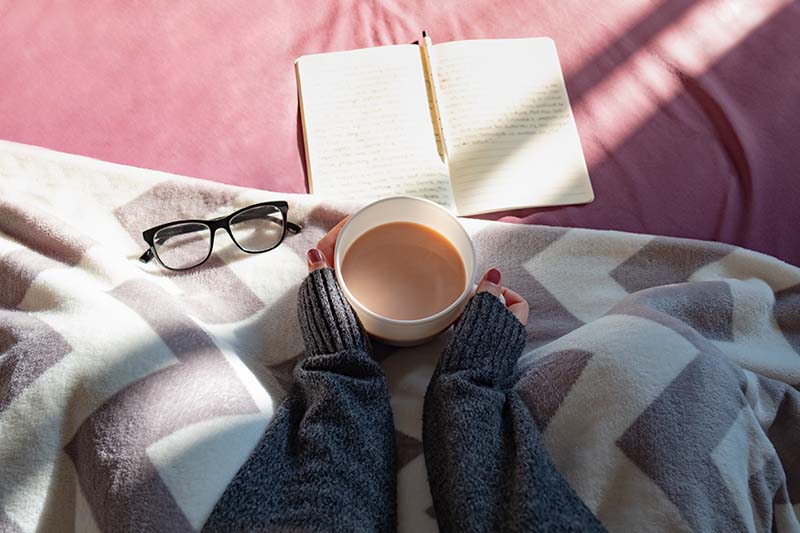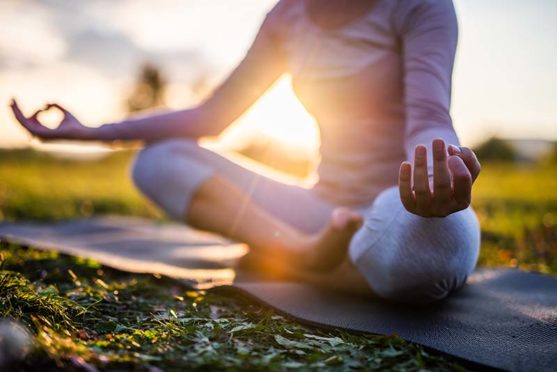Everyone feels anxious or stressed from time to time. And while there’s no one-size-fits-all solution, there are ways that could help calm and centre you and reduce your worries.
The experts at BMI Healthcare have gathered 18 of their favourite simple tips to reduce stress and anxiety, from breathing exercises to eating dark chocolate.
And remember, if you’re feeling stressed or anxious on a daily basis and don’t feel you can manage the symptoms, it’s time to talk to someone.
1. Breathe
This is one of the most common techniques for dealing with stress and anxiety. Breathing exercises take just a few minutes and you can do them anywhere. Many people find them very helpful.
2. Smile
Forcing a smile might be the last thing you want to do when you’re stressed but the physical act of smiling can actually boost your mood.
If you’re struggling to smile, try thinking of a recent time when you were happy or laughing and remember how you felt then.
 3. Write it down
3. Write it down
Some people find it helps to write down what they’re stressed about. Seeing things on paper can make them feel more ordered and easier to face.
Other people find it helps to write a list of what they’re grateful for or proud of.
4. Exercise
Exercise releases endorphins, which are hormones that naturally boost your mood. Research has shown that regular exercise can reduce feelings of stress and anxiety. Even a 10-minute walk each day could make an impact.
5. Try yoga
As well as being great for your fitness, flexibility, core strength and balance, regular yoga can also improve your mood.
6. Get a good night’s sleep
Stress and anxiety can make it more difficult to sleep, and in turn lack of sleep can exacerbate stress and anxiety. Make sure you’re getting around eight hours of sleep a night.
7. See your friends
Whether you talk to them about how you are feeling or talk to them about what you watched on TV last night, seeing friends and loved ones (even over video calls) is an important part of looking after your mental wellbeing.
8. Light a candle
Smell is a powerful sense and certain aromas have the power to affect our mood. For some people, the right smells can reduce anxiety and help them sleep better.
9. Look after yourself
Sometimes when we’re stressed, we start to neglect ourselves. Try not to let the small things slide.
Something as simple as having a relaxing bath or shower, brushing your teeth properly, or making sure your shirt is well-ironed, can genuinely make you feel better and more ready for the day ahead.
10. Look after your home
Similarly, it’s easy to neglect things like tidying, laundry or washing up when you feel overwhelmed. But the old adage, ‘tidy house, tidy mind’ has some truth to it.
 11. Try mindfulness or meditation
11. Try mindfulness or meditation
There’s no guarantee that meditation or mindfulness will help you deal with anxiety or reduce your stress, but for some people they really work.
12. Treat yourself
Stress and anxiety can lead to self-doubt and negativity. Combat these feelings by treating yourself to something nice.
13. Drink water
When you’re dehydrated, even a little, your body releases more cortisol: the hormone triggered by stress.
Add to this the fact that being dehydrated makes you tired, and being tired makes you stressed, and drinking water becomes one of the most important – and simplest – pieces of stress advice.
14. Cut down on caffeine
A tea or coffee might be the first thing you turn to if you’re having a bad day, but too much caffeine can actually increase feelings of anxiety.
Although everyone’s caffeine tolerance is different, cutting back is an easy thing to try and see if it helps.
15. Cut down on sugar
Similarly, while a sugar hit might make you feel good in the short term, it probably won’t help your anxiety in the long run.
When you eat sugary foods, you’ll get a quick energy boost followed by a ‘crash’. This can negatively impact your mood, especially if you’re someone who suffers from low moods anyway.
16. Eat dark chocolate
Yes, too much sugar encourages stress, but a square or two of good quality dark chocolate could actually improve your mood. Choose a bar that’s at least 70% cocoa.
17. Listen to relaxing music
Actually, listen to any music. Calm and relaxing music is often recommended, but studies have found that any music can have a positive effect on your mood and mental health so long as it’s music you enjoy.
18. Tick something off your to-do list
Making a to do list may sound like a simple or even unhelpful thing to do, yet studies have shown that the very fact of writing tasks down on paper can help to reduce the stress we feel about facing them.
If you don’t feel ready to tackle your biggest tasks, choose a small one you know you can complete quickly and easily. The simple act of crossing the first thing off your list can make the whole thing seem more manageable.
